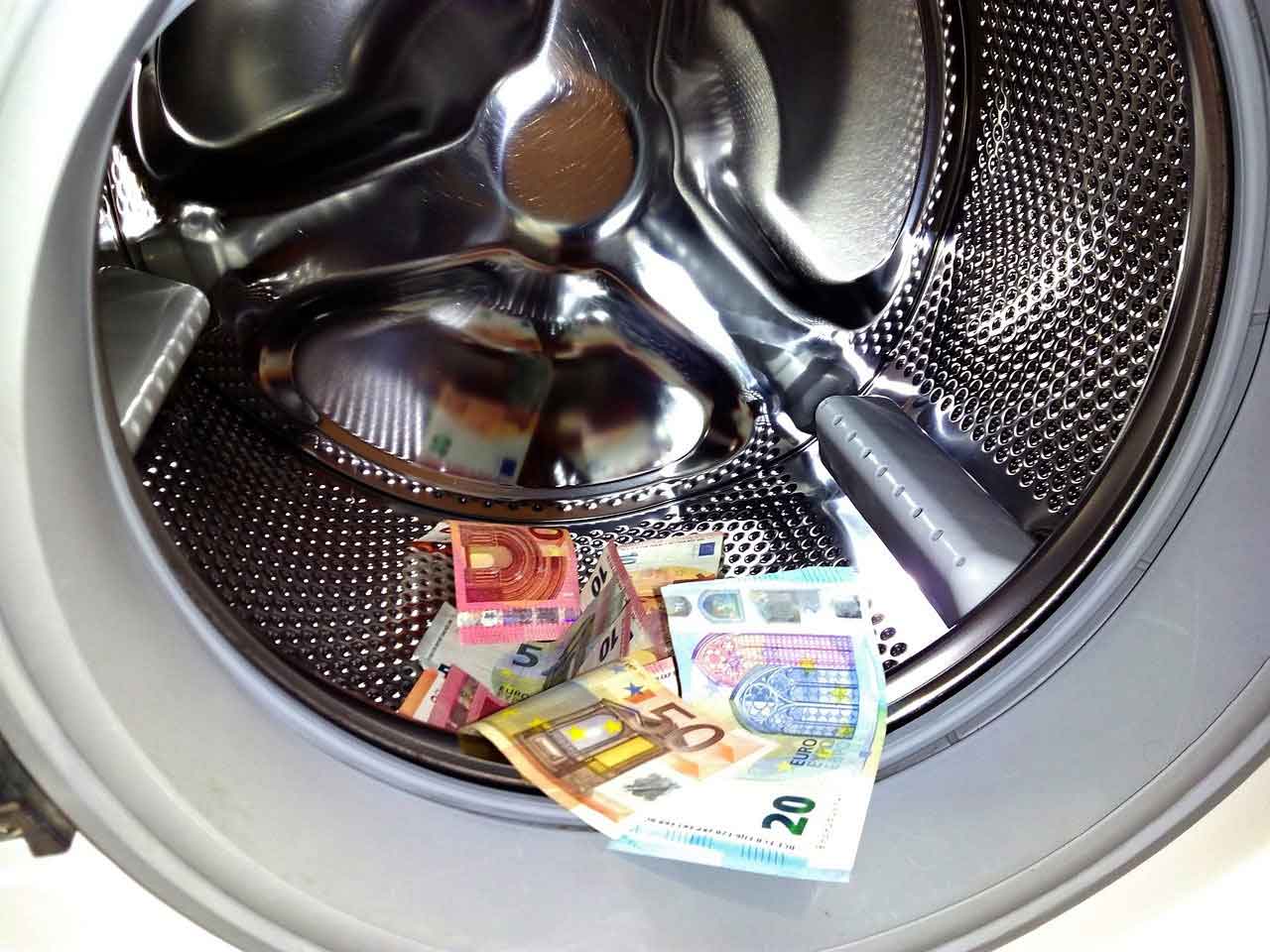Money laundering is a topic that concerns not only law enforcement agencies but also businesses, banks, and consumer protection organizations. After all, the legal framework requires specific rules to be followed in order to prevent money laundering. One might think that a bakery is not as affected by this issue as a bank, but there are many exceptions.
Table of contents
Cryptocurrencies are one of these exceptions and play a very different role in the realm of money laundering than is often portrayed in the media. In this article, we aim to show what money laundering looks like in practice, how to protect oneself, and why cryptocurrencies are ultimately not nearly as dangerous as they are sometimes claimed to be.
Where Does the Money Come From, and What Is Money Laundering?
Money laundering follows other criminal activities from which the proceeds originate. There is a wide spectrum of crimes that necessitate criminals to launder their earnings. They cannot simply deposit large sums of money into a bank account. Therefore, money laundering is particularly necessary in the context of organized and commercial criminal activities because the police and prosecutors generally know who is behind criminal enterprises. While authorities cannot usually intervene directly when there is suspicion, as they must adhere to legal procedures, they closely monitor what is happening in these circles.
It is, therefore, a cat-and-mouse game because criminals exploit existing legal loopholes and quickly identify new ones. Sometimes, these loopholes are closed by the legislator, but this takes time and must always be proportionate because legal amendments often come with restrictions for law-abiding citizens. For example, the limitation of cash purchases of precious metals to €2,000 in cash can be cited as an example. Above this relatively small sum, buyers and sellers of gold, silver, and other precious metals must identify themselves.
So, money laundering is used to launder unlawfully acquired funds and reintegrate them into economic transactions so that the funds can be used legally and without consequences. This process usually comes with significant costs because criminals need to establish suitable businesses in which the money can be discreetly placed. Typical choices include restaurants or betting shops because the flow of money is not transparent in these establishments. While it is not impossible to estimate whether revenues from such businesses are plausible, criminals are aware of this and often distribute larger sums across multiple establishments.
What Role Do Cryptocurrencies Play in Money Laundering?
The most significant use case for cryptocurrencies in the context of illegal activities is the darknet. Here, illegal goods or services are traded directly for Bitcoin, although there is a trend towards criminals increasingly using Monero. The latter has significant advantages in money laundering because it makes it impossible to trace the flow of money on the blockchain.
In essence, there is a need to launder cryptocurrencies acquired through illegal activities. Because methods like blockchain analysis exist, it is generally necessary to obfuscate transactions. In addition to Monero, Bitcoin mixers and Ethereum tumblers are options to achieve this goal. Non-fungible tokens (NFTs) are also becoming increasingly important in laundering cryptocurrencies because criminals face issues with the price volatility of cryptocurrencies.
An NFT can be traded among money launderers at a fixed and arbitrarily determined price. Therefore, an NFT can be acquired or even created at a low cost and then sold at a high price. This practice is known as wash trading and can, in principle, be applied to other tokens or coins as well.
The second dimension deals with the reverse scenario, where cash or book money needs to be laundered. In this case, criminals place money with private individuals and sometimes even with companies. These individuals and companies are then expected to engage in the market and convert the money into cryptocurrencies, which are then transferred to the criminals.
Beware of Dubious Job Offers
To convert and launder money in this way, criminals ideally need many strawmen (individuals who facilitate the laundering process). Relying on a single strawman poses a risk of quick discovery. If a strawman is aware of their role, they usually demand a high share of the earnings and may not be easily motivated to engage in certain actions, knowing that there is a certain level of risk involved.
This is why it is attractive for professional criminals to recruit unsuspecting individuals as their accomplices. They do so by posting job advertisements on relevant websites and contacting strangers via SMS and WhatsApp. They are also active on social media and in WhatsApp groups, attempting to incite others to commit crimes. These job offers often appear to be dream opportunities, promising the chance to earn several hundred or even thousands of euros with minimal effort.
In reality, the recruiters are only interested in one thing: being able to use the bank accounts of otherwise law-abiding individuals. Similar recruitment methods are used for online fraud, where individuals accept and forward funds obtained from fraudulent activities. Often, young people with little life experience are targeted, and they may not fully understand what they are getting into. In some cases, accomplices may even knowingly allow themselves to be used. When their involvement in the crimes is discovered, they typically face charges of negligent money laundering. In most cases, these cases are closed with relatively minor penalties, provided there are no prior convictions. However, accomplices should not rely on this, as an increase in cases could lead prosecutors to take a much tougher stance in the future.
Criminal Activities as Services
In addition to recruiting strawmen, the darknet has a thriving market for services that constitute criminal activities themselves. Criminals rent out a certain number of accounts to other criminals for use. Therefore, those who agree to be recruited can expect to have their bank accounts facilitated by a broker to other criminals.
This division of labor is not new, as every criminal activity requires a level of professionalism. Committing crimes on the internet often requires profound IT knowledge. Because these skills may require professional or even academic education, IT services are also available for criminal purposes in the darknet.
Regarding cryptocurrencies, these services often include fully verified accounts on cryptocurrency exchanges or bank accounts, both domestic and international, that can be used for laundering. Credit cards, which are also used for many other criminal activities, are also popular.
How Can Money Laundering with Cryptocurrencies Be Prevented?
The most effective means of prevention involve introducing standardized procedures at exchanges and service providers to clearly and securely identify economically entitled individuals. Regulatory regimes are another key component. In the United States, existing laws are enforced, and regulatory authorities like the SEC take action against market participants deemed to have fallen short of regulatory standards. In the EU, there is an approach that has been welcomed by much of the industry, bringing clarity on how cryptocurrencies are to be legally categorized and what conditions companies and issuers must meet.
MiCA (Markets in Crypto-Assets Regulation) is set to take effect in 2024. While it may be burdensome for smaller companies due to increased compliance efforts, it fundamentally provides better conditions. Since the existing securities regulations do not fully accommodate digital assets, an EU-level legislative amendment was rightly passed. With that in mind, expectations for MiCA are high as it finally eliminates all uncertainties.
In terms of money laundering, this also means clear guidelines that establish more precise and uniform rules for how service providers and exchanges should proceed in this regard. Ultimately, they, like financial institutions, are the only stakeholders who can be sensibly obligated to take action. It is foreseeable that, under the existing and soon-to-come regulations, blockchain analysis will play a significant role. This means that transactions from Bitcoin addresses on sanctions lists can already be effectively frozen and reported by the recipient. The origin of funds can also be well-documented. In the end, for privacy reasons, companies receiving cryptocurrencies may require proof of funds from their customers. In some countries, such as the Netherlands, many providers already require proof that the associated address truly belongs to the customer when withdrawing cryptocurrencies.
So, things are getting a bit more complicated, but it aims to better protect the interests of the general public. However, individuals should still be able to initiate transfers freely with each other without the need for mutual verification.
What Other Economic Sectors Are Affected by Money Laundering?
Surprisingly, the real estate market still remains highly attractive for money laundering. This is because real estate transactions were allowed to be conducted in cash for a long time, enabling the laundering of very large sums of money.
For this reason, the legislation in Germany was changed, prohibiting the purchase of real estate in cash since April 1, 2023. Sellers and buyers must prove to the notary that electronic funds were used; otherwise, the necessary entries cannot be made. However, exceptions exist for so-called notarial escrow accounts and purchases of up to a maximum of €10,000 in cash.
This example demonstrates that cryptocurrencies are not the only desirable means for money launderers. While the situation is tightening in the Western world with more areas coming under scrutiny, it is significantly worse in some other countries. Some nations deliberately maintain lax legislation to attract capital from dubious sources, openly positioning themselves as money laundering havens. Examples include Panama and the Emirate of Dubai.
What Should You Do If You Suspect Involvement in Money Laundering?
If you suspect that you have been directly or indirectly involved in money laundering with cryptocurrencies, you should contact Crypto Tracing. We can examine and narrow down the sources of transactions and document the situation.
Because we collaborate closely with an attorney specialized in cybercrime, they can advise you directly on the best course of action in your specific case. Depending on the circumstances, self-reporting or filing a complaint against involved individuals may be considered. In these matters, Attorney Dr. Maisch can provide advice and representation as necessary.
Do not hesitate to contact us today! We have been able to improve the situation for many affected individuals in various cases, including those involving stolen or hacked bitcoins.
FAQs About Money Laundering with Cryptocurrencies
Are cryptocurrencies more susceptible to money laundering than fiat currencies?
No, cryptocurrencies are not inherently more susceptible, but they offer a certain level of protection due to the pseudonymous nature of sender and receiver. Because the flow of money is initially opaque, money launderers can take advantage of it.
What technologies are used to combat money laundering in the crypto sector?
In addition to blockchain analysis, a range of other technologies are employed to prevent money laundering with cryptocurrencies. AI and machine learning play a significant role, particularly in advancing automation in monitoring.
What are the consequences if someone is involved in money laundering with cryptocurrencies?
In most cases, individuals involved face criminal prosecution. Depending on the specifics of each case, they may be charged with negligent money laundering, assuming the accused had little to no significant involvement. In Germany, money launderers can face up to 5 years in prison in simple cases and up to 10 years in particularly severe cases.
What are the differences between "on-chain" and "off-chain" transactions in relation to money laundering with cryptocurrencies?
On-chain transactions are publicly visible on the blockchain and can be analyzed by anyone. Off-chain transactions, on the other hand, refer to either transactions on a second-layer network or the transfer of private keys. While second-layer networks can still be monitored, verifying the exchange of private keys or seeds is not straightforward.
Why are freshly mined Bitcoins so coveted by money launderers?
Miners are rewarded with transaction fees and the so-called block subsidy. Therefore, newly mined Bitcoins have no transaction history. Money launderers are willing to acquire the private keys for these coins and exchange them for "dirty" Bitcoins at a significant premium.





